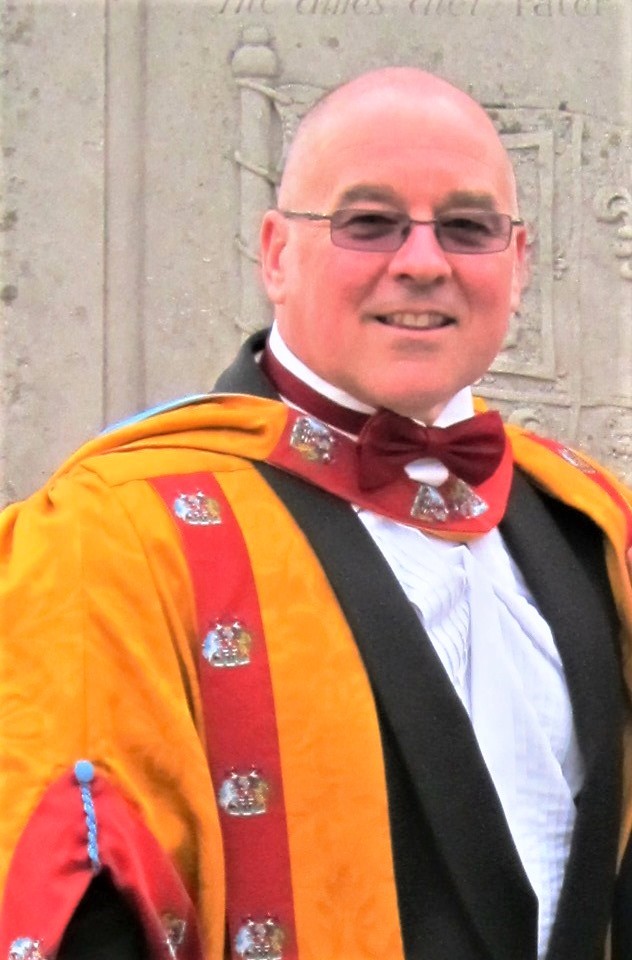1st Dec 2021 5pm
- 6pm
This activity takes place online David Evans, OBE NTF Professor in Sexualities and Genders: Health and Well-being University of Greenwich, Faculty of Education, Health and Human Sciences School of Health Sciences and Institute for Lifecourse Development Hashtag for the event: #ProfS&G David Evans left school at 16 with 2 O levels and 5 CSEs. He sat the (then) GNC entrance test to commence orthopædic nurse education at 17, and again, for State Registered Nurse at 19. He spent a decade with the Catholic Church, seven years of priestly studies - including direct entry to year 2 of the BA(Hons) in Theology at Kent – followed by pastoral work in South Wales. He returned to nursing in 1989, working on an HIV in-patient service, and commenced his teaching career in 1990. A string of professional and academic qualifications ever since, David holds an MPhil from the University of Wales, Cardiff, entitled The Psychic Shadows of HIV and AIDS: and the role of social representations in post-registration nurse education (1997), and a professional doctorate in education (EdD) from the University of Greenwich (2011), researching sexual health education for nurses in England. He became a National Teaching Fellow in 2014; appointed an OBE by Her Majesty The Queen (2017) “for services to nursing and sexual health education” followed by Principal Fellow of the Higher Education Academy and full Professor in the teaching and learning pathway, both in 2018. Adapting and developing a motif from WHO, I proudly proclaim “there is no health without sexual health / no education without sexual health education”. Teaching sexual health for almost 32 years and reaching the honoured position of the professoriate in 2018, this (belated) inaugural lecture is an opportunity to reflect on ‘a history of the present’, as Foucault might say. It is a chance to re-affirm and re-situate sexual health throughout the life-course, and as an integral and indispensable component for education in nursing, midwifery and across health professions (Evans, 2011). The title of the professoriate seems long, but each and every word – and their plurality - are intentional (Evans, 2017; Mitchell et al. 2021). Equally intentional is the day and date for this on-line inaugural presentation: World AIDS Day 2021. The world first became aware of a new, exceptionalised, illness phenomenon, eventually labelled “AIDS”, 40 years ago, on the 5th of June. Just 8 years later, on 1st December 1989, as a Staff Nurse on an HIV in-patient ward, I met Her Late Royal Highness, Diana, Princess of Wales, for the first time. From those early days, one of the great influences HIV has had on healthcare is in the provision of specific education and training. From the initial HIV training events, we branched out to embrace the wider curriculum across various domains of sexual and reproductive health; from undergraduate level and CPD, through masters to doctorates and post-docs (Evans, in RCN, 2001). This is where we are at today. But sexual health isn’t just important for healthcare professionals. In the Higher Education Policy Unit’s largest report to date (HEPI Report 139)(Natzler and Evans, 2021), I had the opportunity to take stock of what more needs to be done, across our wider academic community, for our learners of today and citizens of tomorrow. As Brown et al. (2021) state, we need to “increase the visibility and decrease the invisibility”. As my time in this professoriate moves forward, it is important to think of legacy and succession planning. The proud history we have of sexual health education and research at Greenwich needs to go from strength to strength. Therefore, it is my belief - an imperative, even - for the impact of this professorial role, that we still need to talk about sex – and health – and still need to challenge the limits of language (Grey, 1993). References Brown, M., McCann, E., McCormick, F. (2021) Making the invisible visible: the inclusion of LGBTQ+ health needs and concerns within nursing and midwifery pre-registration programmes, Queen’s University and Trinity College Dublin, cited at: https://www.qub.ac.uk/schools/SchoolofNursingandMidwifery/FileStore/Filetoupload,1222743,en.pdf Evans, D.T. (2011) Sexual Health Matters: learning for life. Mapping client need and professional sexual health education for nurses in England, Doctorate in Education (EdD) thesis, University of Greenwich Evans, D.T. (2017) Sexualities, Wiley Blackwell Encyclopedia of Social Theory, edited by Bryan S. Turner, Chang Kyung-Sup, Cynthia Epstein, Peter Kivisto, William Outhwaite, J. Michael Ryan. Chichester, UK, John Wiley & Sons Ltd. https://doi.org/10.1002/9781118430873.est0335 Grey, A. (1993) Speaking of sex – the limits of language, London, Cassell Publications Mitchell, K.R., Lewis, R., F O’Sullivan, L.F., Fortenberry, J.D. (2021) What is sexual wellbeing and why does it matter for public health? Lancet Public Health(2021); 6: e608–13 https://doi.org/10.1016/ S2468-2667(21)00099-2 Natzler, M. and D.T. Evans (2021) Student Relationships, Sex and Sexual Health Survey, HEPI Report 139, London, Higher Education Policy unit and Brook, cited at: https://www.hepi.ac.uk/wp-content/uploads/2021/07/Student-Relationships-Sex-and-Sexual-Health-Survey_Report-139_FINAL.pdf RCN (2001), RCN Sexual Health Strategy – guidance for nursing staff, London, Royal College of Nursing For further information or to receive an invite to the lecture please email ILD@greenwich.ac.uk From taster days to subject open evenings, find out more about what you'll study, where you'll study it and perhaps even meet who'll you'll be studying with. Whether you are a teacher or parent, we offer a range of events designed to assist you in helping others make life choices. Learn something new or join the discussion at one of our many public lectures, seminars and events, covering everything from education to foreign policy and current affairs.
The Professorial Inaugural Lecture of
Wednesday 1 December 2021 5.00-6.00pm online
Still Speaking of Sex
Still Challenging the Limits of Language
More Greenwich events

Events for prospective students

Teachers and advisers

Public events and lectures